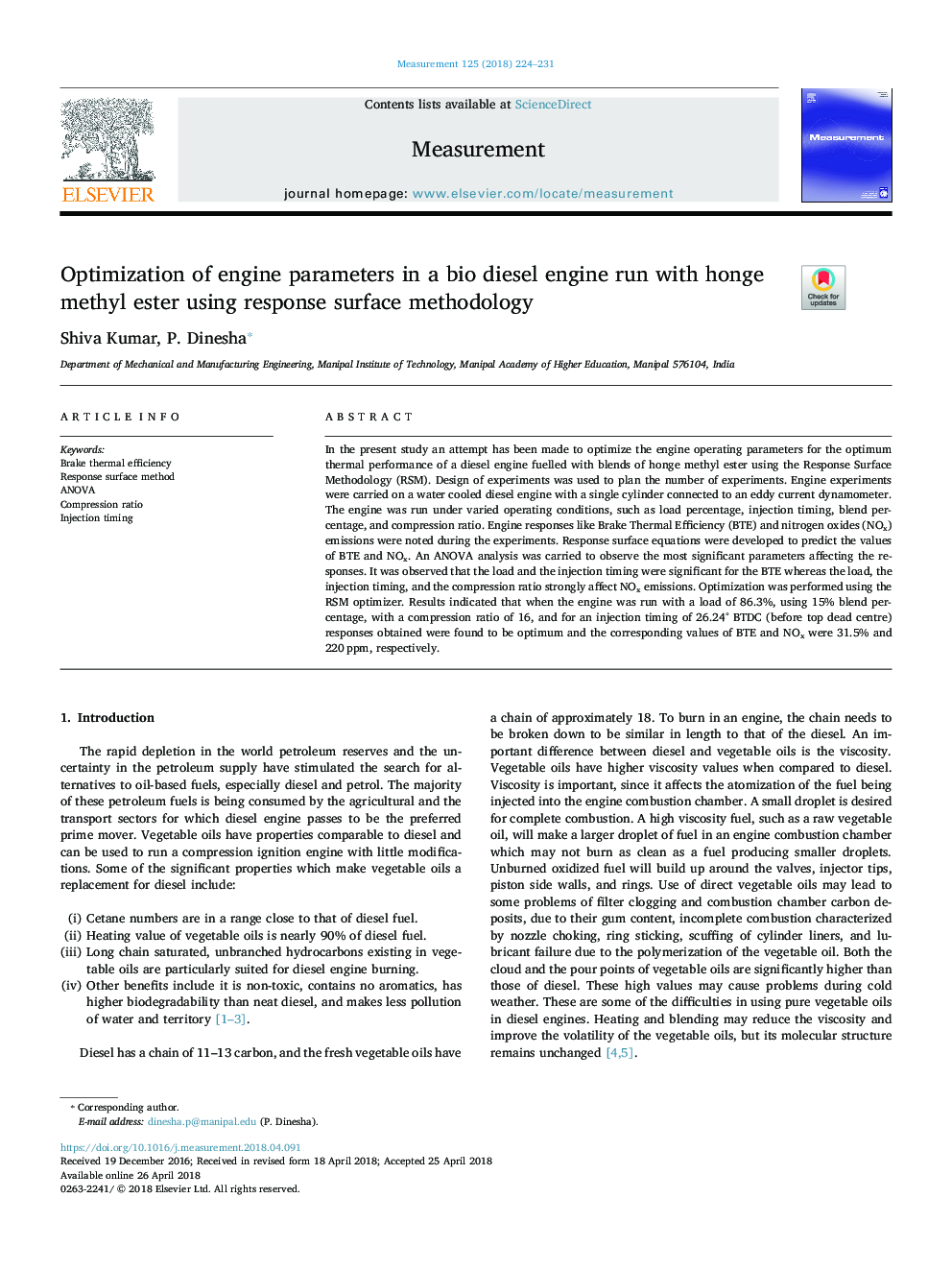| Article ID | Journal | Published Year | Pages | File Type |
|---|---|---|---|---|
| 7120776 | Measurement | 2018 | 8 Pages |
Abstract
In the present study an attempt has been made to optimize the engine operating parameters for the optimum thermal performance of a diesel engine fuelled with blends of honge methyl ester using the Response Surface Methodology (RSM). Design of experiments was used to plan the number of experiments. Engine experiments were carried on a water cooled diesel engine with a single cylinder connected to an eddy current dynamometer. The engine was run under varied operating conditions, such as load percentage, injection timing, blend percentage, and compression ratio. Engine responses like Brake Thermal Efficiency (BTE) and nitrogen oxides (NOx) emissions were noted during the experiments. Response surface equations were developed to predict the values of BTE and NOx. An ANOVA analysis was carried to observe the most significant parameters affecting the responses. It was observed that the load and the injection timing were significant for the BTE whereas the load, the injection timing, and the compression ratio strongly affect NOx emissions. Optimization was performed using the RSM optimizer. Results indicated that when the engine was run with a load of 86.3%, using 15% blend percentage, with a compression ratio of 16, and for an injection timing of 26.24° BTDC (before top dead centre) responses obtained were found to be optimum and the corresponding values of BTE and NOx were 31.5% and 220â¯ppm, respectively.
Related Topics
Physical Sciences and Engineering
Engineering
Control and Systems Engineering
Authors
Shiva Kumar, P. Dinesha,
